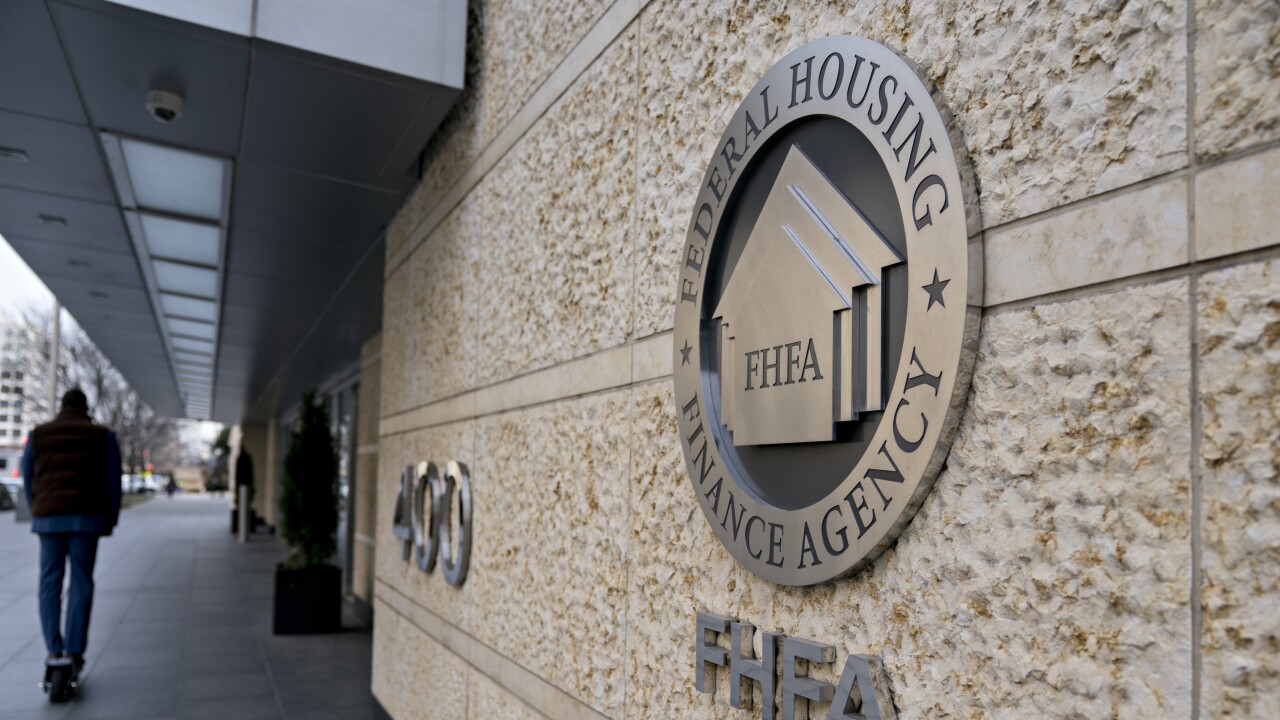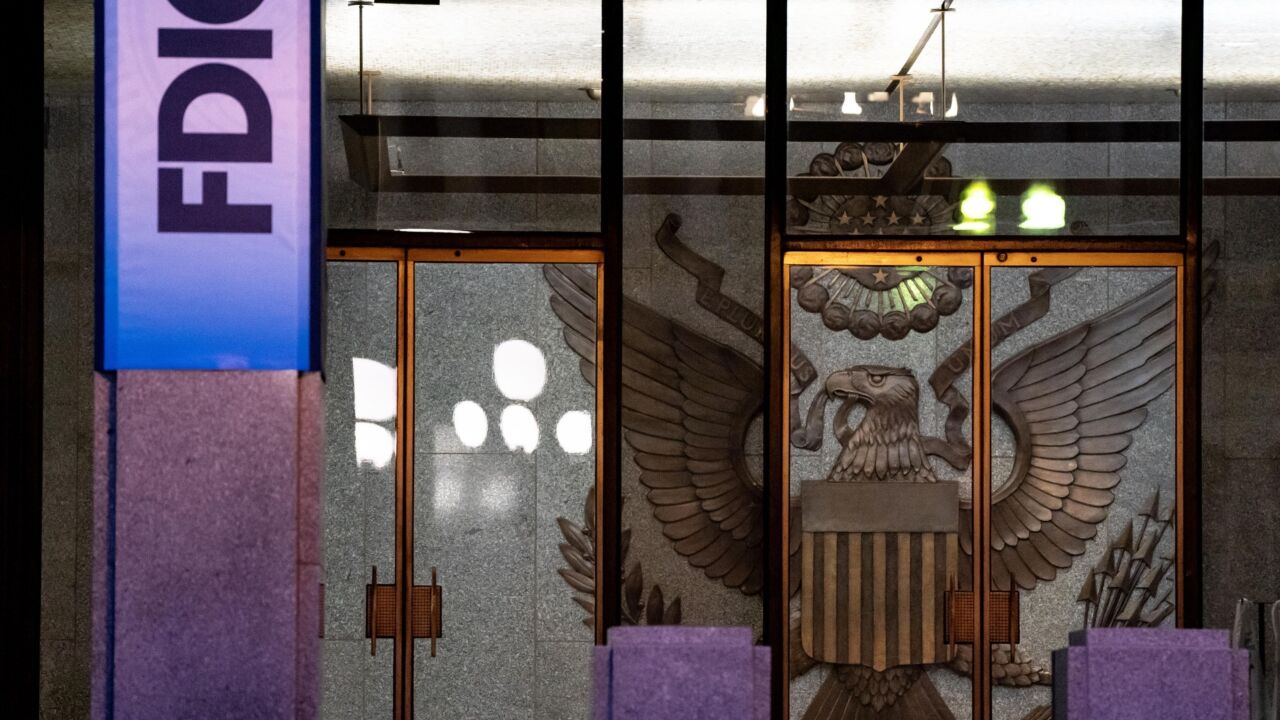Consumer banking
Consumer banking
-
The Federal Housing Finance Agency wants to update the dual mission of the Federal Home Loan Banks. Members of the private bank cooperative say their regulator has no authority to redefine the mission.
August 8 -
The Federal Deposit Insurance Corp.'s focus on implementing stricter control over brokered deposits is misguided, a former chairman on the agency writes, and misses the real lessons of 2023's bank failures.
August 8 -
First National Community Bank CEO Ryan Earnest said his institution would likely use its entry into Paulding County, an Atlanta suburb, as a template for future expansion.
August 7 -
The Long Island-based thrift, long associated with multifamily and CRE lending, saw business lending spike the past year as it onboarded 15 banking teams. Other banks that did significant hiring have also reported more deposits and wider margins.
August 6 -
New executives were lined up for lenders across the country, including Fremont Bank in California.
August 5 -
When banks realize they are unable to continue their operations, a credit union is often a natural partner to consider.
August 4 -
The agency admitted navigating the different rules and regulations involved in its four existing lines of credit proved time consuming and confusing and kept some lenders from offering them altogether.
August 2 -
The KBW Nasdaq Bank Index was up 18% year to date through July, supporting expectations for more banks to use their shares as currency to take out competitors.
August 1 -
U.S. banks need to start taking sustainability risk seriously
August 1 -
Despite the continuing trends of consolidation and limited startup activity, bankers and industry insiders say there is a path forward. But small lenders must evolve with changing technology.
August 1 -
The five largest bank M&A deals had an average deal value of more than $1.2 billion.
August 1 -
The Kansas City, Missouri-based regional bank said it is making progress on its pending purchase of Heartland Financial USA in Denver. The deal is expected to close during the first quarter of 2025.
July 31 -
-
Generative AI is exciting, but has limited fraud-busting utility. Instead of rushing to implement gen AI-powered anti-fraud initiatives, banks should focus on strengthening their existing security measures.
July 31 -
The top five banks and thrifts had combined assets of more than $13 trillion as of March 31, 2024.
July 31 -
The Hammond, Louisiana, company, which announced changes to its business strategy, cut 71 jobs and reduced its dividend to 8 cents per share.
July 30 -
The $330 million transaction announced late Monday would give the Jasper-based company a foothold in fast-growing Columbus, as well as in Cincinnati.
July 30 -
The buyer said the all-stock deal to buy The First Bancshares would create a combined bank with $25 billion of assets.
July 29 -
The Wilmington, North Carolina-based institution is pursuing a model that cuts out the middleman and embeds its services directly into fintech partners' platforms.
July 29 -
In a new survey of bank executives from IntraFi, 90% of respondents said instances of check fraud have increased in recent years and half want law enforcement to make check fraud a bigger priority to stop criminals from stealing checks in the mail.
July 29





















